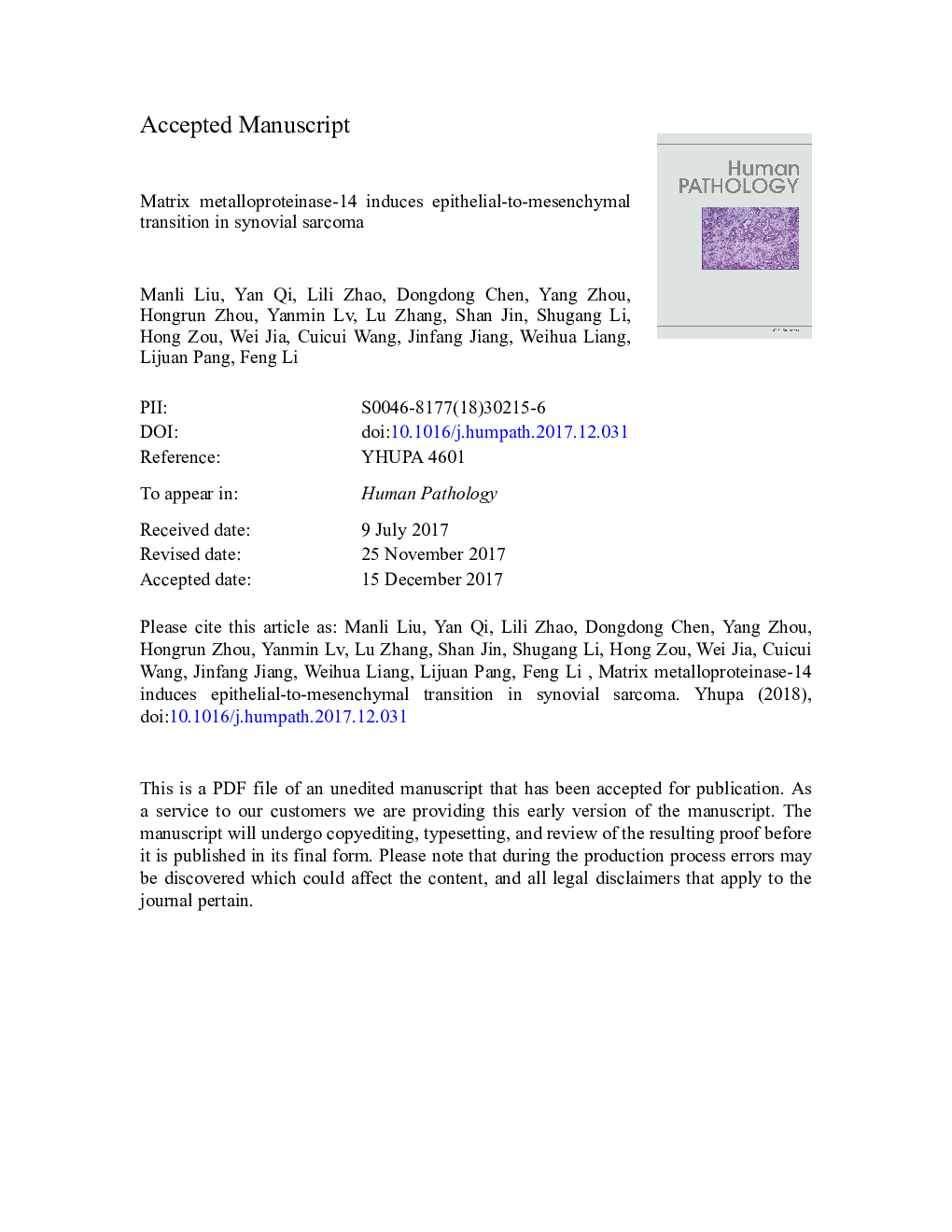| Article ID | Journal | Published Year | Pages | File Type |
|---|---|---|---|---|
| 10091019 | Human Pathology | 2018 | 30 Pages |
Abstract
Synovial sarcoma (SS) is a highly aggressive malignant soft tissue sarcoma with typical characteristics of both epithelial and mesenchymal differentiation. Matrix metalloproteinase-14 (MMP-14) is reported to play an important role in some of these tumors. It induces epithelial-to-mesenchymal transition (EMT) in some carcinomas, such as breast and prostate cancers. However, the role of MMP-14 in the pathogenesis of SS remains unclear. Therefore, we investigated the role of MMP-14 and EMT/mesenchymal-to-epithelial transition in SS. The expression of MMP-14 and EMT-related proteins was determined in 37 SS cases and transfected cells by immunohistochemistry staining and Western blotting. The invasion ability of transfected cells was determined by transwell invasion assay. The expression rates of MMP-14, E-cadherin, N-cadherin, and vimentin were 75.7%, 54.1%, 75.7%, and 100%, respectively, in the cases of SS. The expression of MMP-14 correlated negatively with E-cadherin and positively with N-cadherin in monophasic fibrous SS. The MMP-14 protein expression was higher in stage III/IV than in stage I/II. After MMP-14 was transfected into SW982 cells, MMP-14, N-cadherin, and vimentin expression was up-regulated, and E-cadherin expression was down-regulated. High expression of MMP-14 enhanced the invasive ability of SW982 cells. Our findings suggest that MMP-14 enhances the invasive ability of SW982 cells by inducing EMT. By this action, it may play an important role in the occurrence and development of SS.
Related Topics
Health Sciences
Medicine and Dentistry
Pathology and Medical Technology
Authors
Manli MD, Yan MD, Lili MD, Dongdong MD, Yang MD, Hongrun MD, Yanmin MD, Lu MD, Shan MD, Shugang MD, PhD, Hong MD, Wei MD, Cuicui MD, Jinfang MD, Weihua MD, Lijuan MD, PhD, Feng MD, PhD,
